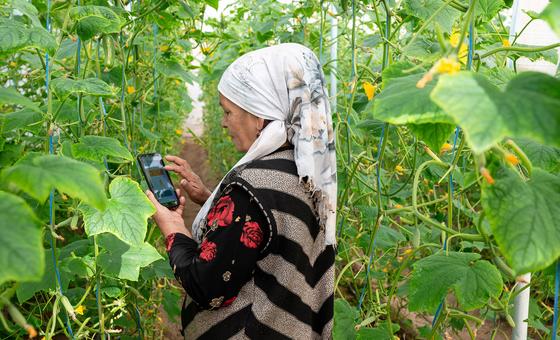The Unjust Climate report highlights the reality that every year in low and middle-income countries, female heads of households in rural areas suffer significantly greater financial losses than men.
On average, female-headed households lose eight per cent more of their income due to heat stress and three per cent more due to floods compared with male-headed households.
This translates to a significant per capita income reduction of $83 due to heat stress and $35 due to floods, totalling $37 billion and $16 billion, respectively, across the most impoverished countries.
If average temperatures were to increase by just 1°C, these women would face a staggering 34 per cent greater loss in their total incomes compared to men. The study suggests that if it is not addressed, climate change will greatly widen these gaps in the years ahead.
Powerful impact
“Social differences based on locations, wealth, gender and age have a powerful, yet poorly understood, impact on rural peoples’ vulnerability to the impacts of the climate crisis”, said FAO Director-General QU Dongyu.
“These findings highlight the urgent need to dedicate substantially more financial resources and policy attention to issues of inclusivity and resilience in global and national climate actions”.
For a deeper dive into this story, go here to read an interview with Lauren Phillips, Deputy-Director of FAO’s Rural Transformation and Gender Equality Division.
Nearly 1.3 million children in Yemen protected from polio
A mass polio immunization campaign in Yemen has reached more than 1.29 million children under five in the course of just four days, the UN announced on Tuesday.
An astonishing 89 to 100 per cent of the children targeted were reached by the joint campaign involving Yemen’s Ministry of Public Health and Population, UN Children’s Fund (UNICEF) and the World Health Organization (WHO).
“This is an important step to protect children from deadly childhood diseases”, said Peter Hawkins, UNICEF Representative in Yemen.
“With confirmed cases of polio among Yemeni children, an imminent threat persists. This is an ongoing risk to the life of every unvaccinated child. Health authorities and donors must continue to work together to ensure universal immunization coverage for all children across Yemen”.
WHO Representative, Arturo Pesigan, described the inoculation drive as a major achievement in advancing the health outcomes and well-being of children in Yemen.
Investment in the future
“Poliovirus and other childhood diseases can cause permanent disabilities and, in many cases, death. But a small dose of vaccine can provide the necessary protection”, he said.
“There is no reason for children to die of vaccine-preventable diseases. Children are the future, and all investment in their health is an investment in the development of the country”.
The campaign was implemented with the support of the Global Polio Eradication Initiative. Yemen joined more than 35 countries in using the novel oral polio vaccine type 2 (nOPV2), which has been granted WHO prequalification.
‘No sustainable development without peace’: Deputy UN chief
There can be no sustainable development in line with the Global Goals for 2030, without peace, the UN deputy chief told a high-level meeting of Arab States in the Lebanese capital on Tuesday.
Amina Mohammed addressed the Arab Forum for Sustainable Development the world is facing complex challenges, not least in the Middle East, which is being roiled by conflict and instability.
“Persistent and recurrent conflicts and fragility are directly impacting 182 million people in nine countries in this region and exacerbating the refugee crisis” she said.

UN Deputy Secretary-General Amina Mohammed speaks at the opening of the 2024 Arab Forum for Sustainable Development in Beirut, Lebanon.
The war in Gaza and other crises “remind us that there can be no sustainable development without peace. And truly sustainable development – here in the Arab world, and across the globe – remains a very long way off”, she added.
More than halfway to the deadline of the 2030 Agenda, the Sustainable Development Goals (SDGs) are severely off-track, globally and in the Arab region.
The Deputy Secretary-General said that extreme poverty in the region has more than doubled since 2015 and is now above 20 per cent while unemployment stands at 10.7 per cent.
Gaps widening
The Arab region is also suffering from a growing financing gap while droughts, floods, the sand and dust storms, and other climate and environmental challenges constrict economic and social development, with carbon emissions rising 68 per cent between 2000 and 2020, twice as fast as the global trend.
But against this backdrop, “there are signs of hope”, she said, noting the pledge of $500 billion a year made during last September’s SDG Summit and reforms to the global financial architecture to make it more equitable, resilient, responsive and accessible to everyone.
“We need to ramp up action around policies and investments that can drive transformative change” she told delegates, adding that many Arab countries are already accelerating efforts around key transformations from clean energy, food systems, to digitization, social protection reforms and economic diversification.

